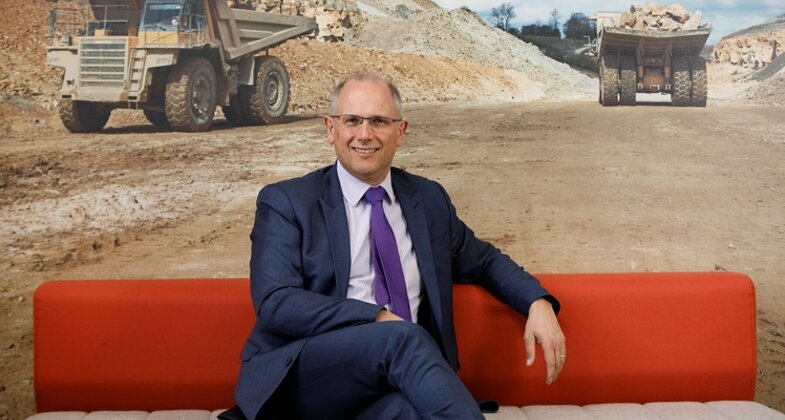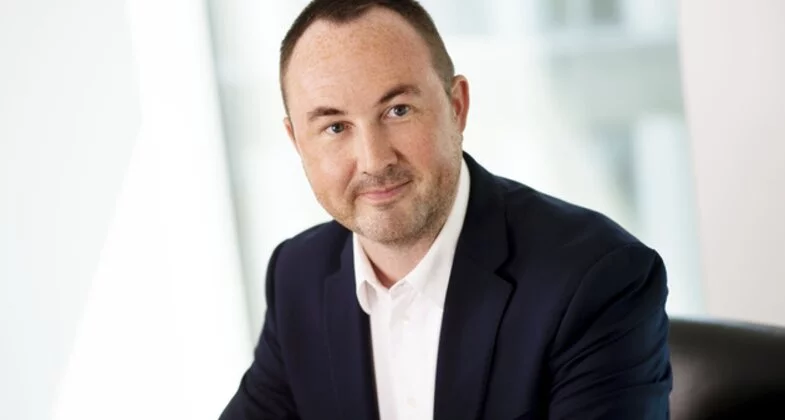Manufacturing Matters: Five minutes with…Simon Willis, CEO of Hanson UK
Simon Willis is the CEO of Hanson UK – a leading supplier of heavy building materials to the construction industry, and part of the HeidelbergCement Group, one of the largest building materials manufacturers in the world. Hanson UK is split into four business lines – aggregates, concrete, asphalt, and cement – which together operate around 300 manufacturing sites and employ over 3,500 people.
Berwick Partners’ Jonathan Burke caught up with Simon to find out how the pandemic has impacted Hanson UK, and what change this could lead to in the future.
How has the current pandemic affected Hanson in the UK?
It has affected us massively. From a volume point of view, we saw levels of demand drop off dramatically at the end of March – in some areas to as low as 20% of what we would normally expect. While the whole business has been affected, the picture is different for each product and region.
For instance, demand for concrete in London dropped off completely initially, but has since bounced back. Some of our products are doing very well; one very innovative construction solution is running at 180% of what we’d normally expect. In general, we’ve seen that all our product sales began to grow again from the start of April.
From a workforce perspective we had up to 50% of our employees on furlough at the peak, although we have kept sites open wherever possible. All the directors in the UK have voluntarily taken a 20% pay cut, in solidarity with our furloughed staff.
Looking ahead we don’t see very many new construction projects starting – companies such as housebuilders are really focused on finishing off everything they have started and want to sell what they’ve built before breaking new ground. Conversely, Highways for England has accelerated some of its projects to take advantage of the quieter roads – which has been good news for us an asphalt supplier.
One of the major alterations we’ve had to make is recruiting and onboarding new people into the business. This has been completely online for some people, and therefore they have not physically met anyone in Hanson yet.
How have you approached leading the business through this period? Have you had to change how you lead?
Yes, in lots of ways. I, along with the senior leadership team, have had to be very decisive and very quick to make decisions – while accepting that we might occasionally make mistakes. We’ve been very clear in communicating this with the business, and ensure that we are getting the message across that ‘we are all in this together’.
The level of internal communication has ramped up significantly. I spend a great deal of my time communicating with my team – by phone, videos and newsletters. I do a business update video every week to the whole company, and a weekly call to the 50 most senior managers, as well as regular Q&A calls. Our quarterly newsletter is now weekly and electronic.
There is a new and interesting balance between empowerment and control. For instance, top managers have been empowered to do more, while making it clear what the expectations are. On the other hand, there are some cost decisions where approval levels have been reduced.
All our management meetings are now through video – and it is possible to cover the detail you would normally, but in a more efficient way. However, it is important to try and retain personal relationships as well.
We also have clear expectations that a line manager will speak twice a day to someone in their team who is working from home and at least once a week to those that are furloughed.
What have you learnt as the CEO, and what will you do differently in the future?
I’ve learnt that we can change and improve some of the inefficient processes and reporting that we used to do; in fact, I’ve been amazed how quickly we’ve accelerated this.
I’ve also been impressed with the flexibility that I have seen from our people, and how they like the increased flexibility they now have. I’ve also been surprised by some employees who have really embraced the challenges this crisis has created.
When do you think the market will return to pre-lockdown level of demand?
I think it will be 2022/23 before we get back to where we were, if you don’t include the very big projects such as HS2. I can’t see large office blocks being built, in the short-term. Consolidation within our sector isn’t out of the question, too.
What skills does a leadership team need to navigate their people and business through the type of crisis we are experiencing?
You need people with intellectual agility to generate new ideas. In Hanson, people who can multi-skill have fared the best in this crisis. Some of those who have had a similar experience in previous downturns have also stood out in being able to understand what needs to be done.
What will be the positive changes to your business from the ways you’ve had to adapt the organisation?
The headline is that we will have improved how we lead this group. Additionally, I can see there will be more flexibility around working from home, and also possible changes to the scope of certain roles. We’ve seen a dramatic uptick in our commercial teams engaging with customers purely by video. This could mean less travel, therefore reduced costs, and less CO2 emissions.
I can also see how this period could have a positive impact on the UK’s manufacturing sector, with companies preferring to use local suppliers to strengthen the security of their supply chains.
Jonathan Burke is a Partner in Berwick Partners, a division of Odgers Berndtson, and leads the UK Manufacturing & Engineering Practice. A specialist in general management, commercial and operational leadership roles he has a strong track record within the UK’s Building Materials and Process Industries sectors.
If you would like to speak to him about your own leadership requirements, or your own career aspirations, please contact him through his details below:
jonathan.burke@berwickpartners.co.uk / 0771 8601322






